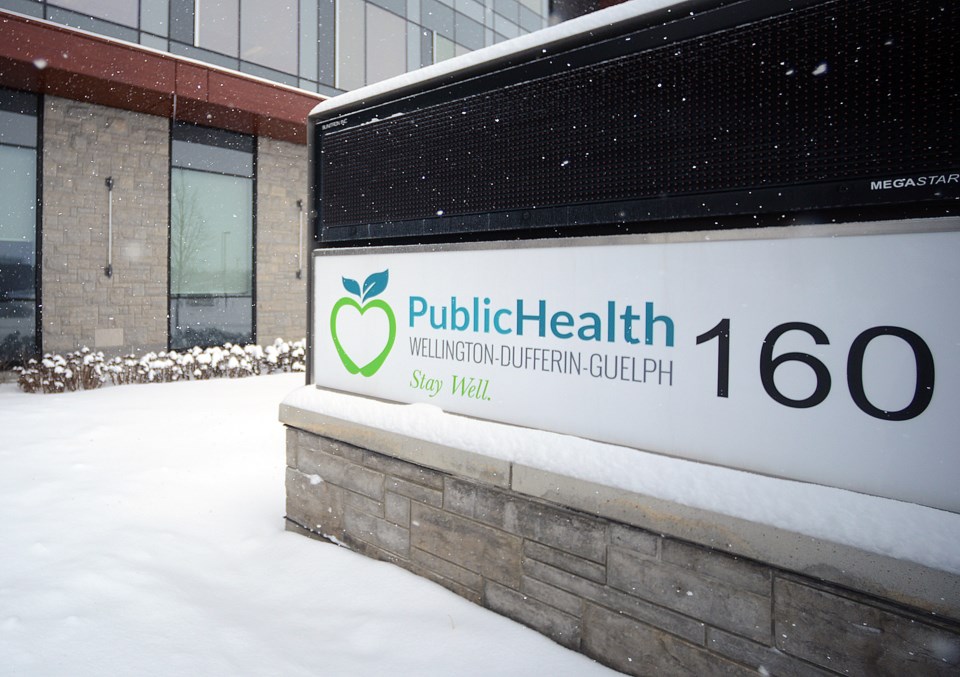When are we reaching herd immunity? How dangerous is the new variant? The answers to those questions are complicated.
With the new Omicron variant, the past week has reminded us that things can change quickly and the pandemic can surprise us, the associate medical officer of health for WDG Public Health, Dr. Matthew Tenenbaum, said at Wednesday's Board of Health meeting.
Tenenbaum said the question about herd immunity is a regular one and achieving herd immunity is challenging because of the highly transmissible Alpha and Delta variants.
“We actually need between 96 per cent and 97 per cent of our population fully immunized, meaning two doses plus two weeks before you reach a herd immunity threshold. That means that we need people to be immunized at much higher rates,” said Tenenbam, adding that the public health unit doesn’t have much confidence on the impact of natural immunity.
He said transmissible variants of concern in the future can push the threshold of herd immunity higher and that we are chasing a target that is difficult to reach.
“I think the hope was that we could eventually get to a place where we have a level of population immunity that allows us to completely suppress transmission and really eliminate the need for other interventions, other public health measures,” said Tenenbaum.
He said little is known about the new Omicron variant.
“We don't know yet with certainty whether it's more easily spread, whether it causes more severe illness, whether there's any impact on the effectiveness of vaccines. But we know that it's a kind of wild card, which prompts us to really think about things,” said Tenenbaum.
He said if it wasn’t for the impact of the previous variants like the Alpha and the Delta, we would probably be in a much better place as a community and much closer to exiting out pandemic response.
“The variants have been a significant wildcard and there is, of course, always a potential for a new variant to exist as long as anywhere in the world there remain people who are unvaccinated,” said Tenenbaum.
“This is a reminder to us to ensure we remain humble with our predictions and maintain a vigilant thinking about changing circumstances. And I can say that as an agency over the past two years, that has been our attitude. We have always looked towards the data source evidence, the emerging best practices. We were the first health unit to really push for masking before it was the mainstream, well accepted, best practice.”
He said the epidemiology of the virus in our community has changed.
“We know that as the vaccine has rolled out to different age groups, the virus which is finding weaknesses and immunity has been moving more and more towards younger age groups,” said Tenenbaum.
“In fact, you can see that in the most recent fall fourth wave, our highest age groups impacted were 18 to 24 year olds, as well as those under age 18.”
Tenenbaum said as a result of the shift in epidemiology, the at-risk groups have also changed.
He said the highest number of deaths in the community was during the second wave. The numbers of deaths began dropping during the third and fourth wave because of the impact the vaccines had and the fact that the epidemiology of the virus has changed.
He also said that hazardous levels change as people's behaviours change.
With people spending more time indoors during social occasions and family gatherings during the winter, the flu and the common cold become more common.
Gatherings, vaccination rates and safety precautions this holiday season will all determine the level of risk the community faces after the holiday season is over said Tenenbaum.
“This is really a key reminder for us, given the upcoming holiday season, that we have control over our own destinies,” he said.
